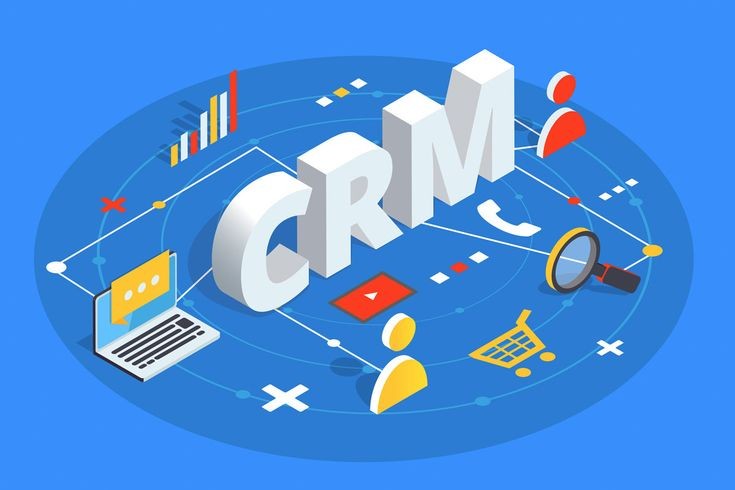The Role of CRM Software in Sales Performance:
- Centralized Customer Data:
CRM software allows businesses to store all customer interactions, contact details, preferences, and purchase history in one place. This centralized database enables sales teams to access relevant information quickly, making it easier to understand customer needs and deliver personalized sales pitches. With all the information at their fingertips, sales representatives can focus on building stronger relationships and closing more deals. - Lead Management and Tracking:
Managing leads efficiently is key to improving sales performance. CRM systems help sales teams track and nurture leads throughout the sales funnel. With features like lead scoring, segmentation, and activity tracking, sales reps can prioritize high-value prospects, follow up on time, and ensure no opportunity is missed. This process helps move leads through the pipeline more effectively, leading to increased conversions. - Sales Forecasting and Analytics:
Accurate sales forecasting is essential for planning and budgeting. CRM software provides tools for analyzing past sales data and predicting future trends. With built-in analytics, sales managers can track key metrics such as conversion rates, win/loss ratios, and average deal size. These insights help in making data-driven decisions, optimizing sales strategies, and setting realistic goals. - Automation of Repetitive Tasks:
CRM software automates repetitive tasks, such as data entry, follow-up reminders, and email campaigns. By reducing the time spent on administrative tasks, sales teams can focus on high-value activities like engaging with leads and closing deals. Automation also ensures that no follow-up is missed, leading to higher efficiency and better sales performance. - Collaboration and Communication:
CRM systems enhance collaboration within the sales team and across departments. Sales representatives can share notes, insights, and updates on leads, ensuring everyone is on the same page. CRM software also allows sales teams to collaborate with marketing, customer service, and other departments to provide a seamless customer experience, leading to higher satisfaction and increased revenue.
Top CRM Software for Improving Sales Performance:
- Salesforce Sales Cloud:
Salesforce is a leader in CRM software, and its Sales Cloud platform is designed to help sales teams close more deals. With advanced lead management, forecasting, and automation features, Salesforce enables businesses to optimize their sales processes and drive revenue growth. - HubSpot Sales Hub:
HubSpot’s Sales Hub is known for its user-friendly interface and powerful sales tools. It offers features such as lead tracking, email automation, pipeline management, and sales analytics, making it an ideal choice for businesses of all sizes looking to improve their sales performance. - Pipedrive:
Pipedrive is a sales-focused CRM that helps teams manage their sales pipeline efficiently. It offers intuitive features like deal tracking, customizable pipelines, and performance reports. Pipedrive is designed to help sales teams close deals faster and more effectively. - Zoho CRM:
Zoho CRM offers a comprehensive suite of sales tools, including lead management, workflow automation, and analytics. It integrates with other Zoho business tools, providing a seamless experience across sales, marketing, and customer service.
Best Practices for Maximizing CRM in Sales Performance:
- Define Clear Sales Goals:
Before implementing CRM software, define clear sales objectives. Whether it’s increasing lead conversion rates, shortening the sales cycle, or improving customer retention, having specific goals helps align your sales team and CRM system to achieve measurable results. - Ensure Data Accuracy:
The effectiveness of CRM software relies on the quality of the data it manages. Ensure that customer information is kept up-to-date and accurate. This allows your sales team to make informed decisions and engage with prospects in a more personalized and effective manner. - Utilize CRM Analytics:
Make the most of the reporting and analytics tools available in your CRM. Regularly monitor key performance indicators (KPIs) such as conversion rates, sales velocity, and win rates. These insights allow sales managers to refine strategies, identify opportunities, and optimize team performance. - Automate Where Possible:
Take advantage of CRM automation features to streamline repetitive tasks, such as sending follow-up emails, creating reminders, or assigning leads to the right team members. Automation improves efficiency and reduces human error, allowing your sales team to focus on building relationships and closing sales.
Conclusion:
CRM software is a game-changer for sales teams looking to enhance performance and drive revenue growth. By centralizing customer data, automating tasks, providing insights into sales trends, and fostering collaboration, CRM systems help businesses close more deals and improve sales productivity. Implementing the right CRM platform, combined with best practices, can significantly impact your sales performance, helping your business grow and succeed in an increasingly competitive market.



